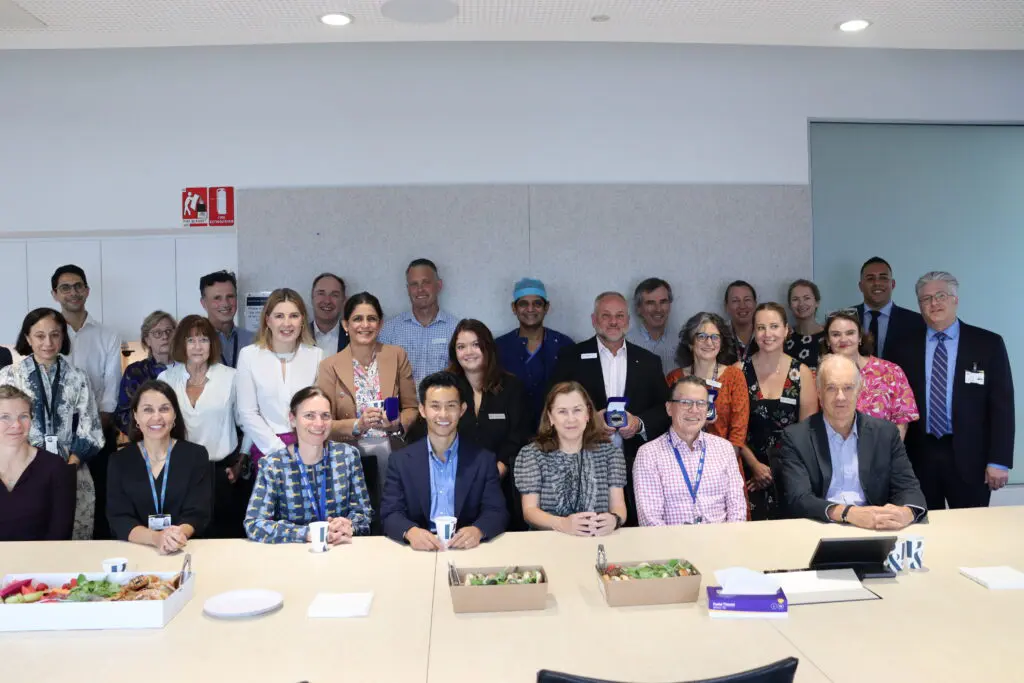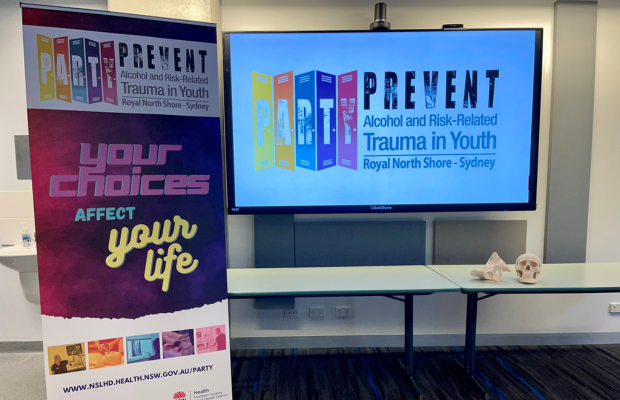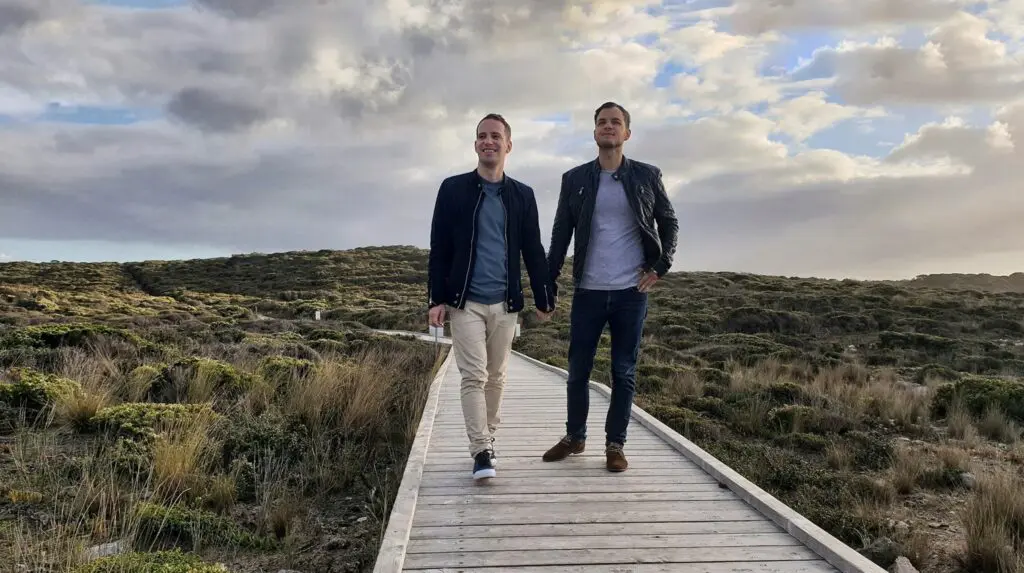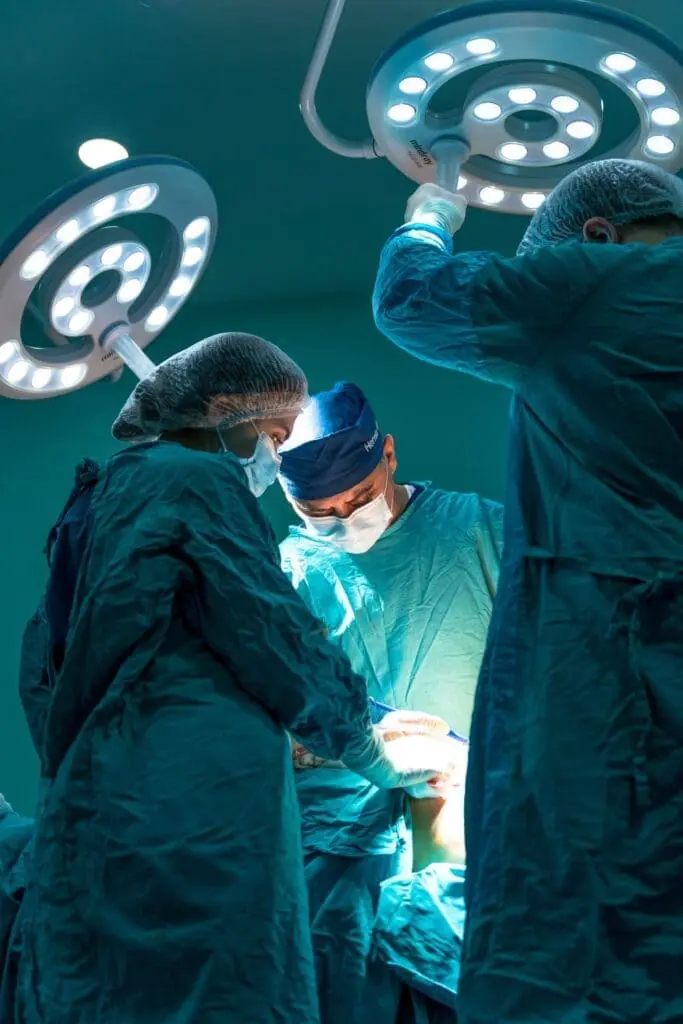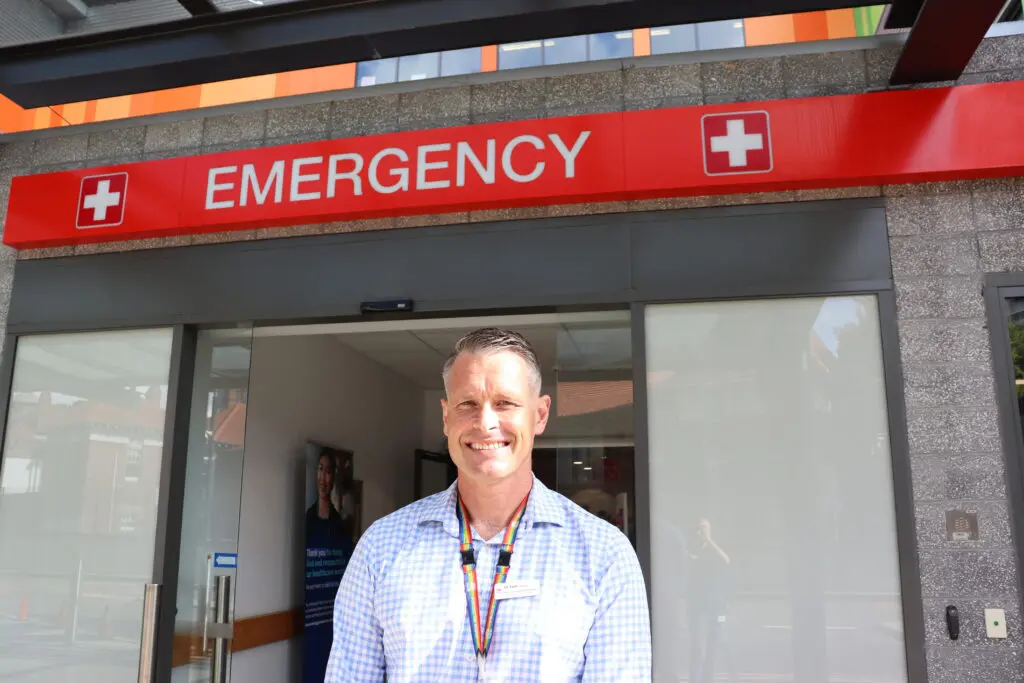
Royal North Shore Hospital (RNSH) has one of the busiest emergency departments (ED) in Sydney providing emergency care to approximately one million residents within the Northern Sydney Local Health District (NSLHD) and beyond. The director of the ED, Dr Tom Harwood works with his team to provide emergency diagnoses and ensure patients are matched to hospital resources in a timely manner.
More than 85,000 patients come through the doors of the emergency department at Royal North Shore Hospital every year.
An ED provides 24-hour emergency care to patients who need immediate medical attention for severe injuries or illness. On presentation to the ED, patients are triaged or assessed by Dr Harwood’s team to determine the urgency of their need for treatment; stabilised and treated according to their injury or illness.
Providing emergency care to patients outside of the district
RNSH ED is classified as a Level 6, which is the most capable ED within the NSLHD, delivering complex care to patients. It is a state retrieval centre for major burns, spinal injuries and trauma and as a result, patients often come from out of the district.
"We meet people who might be having the worst day of their life," said Dr Harwood, "and we are here to help them."
The ED team is used to the fast-paced nature of the unit and the highly trained staff work in a dynamic environment, treating a variety of injuries or for those who have a chronic illness, helping and supporting them through their journey and providing immediate care.
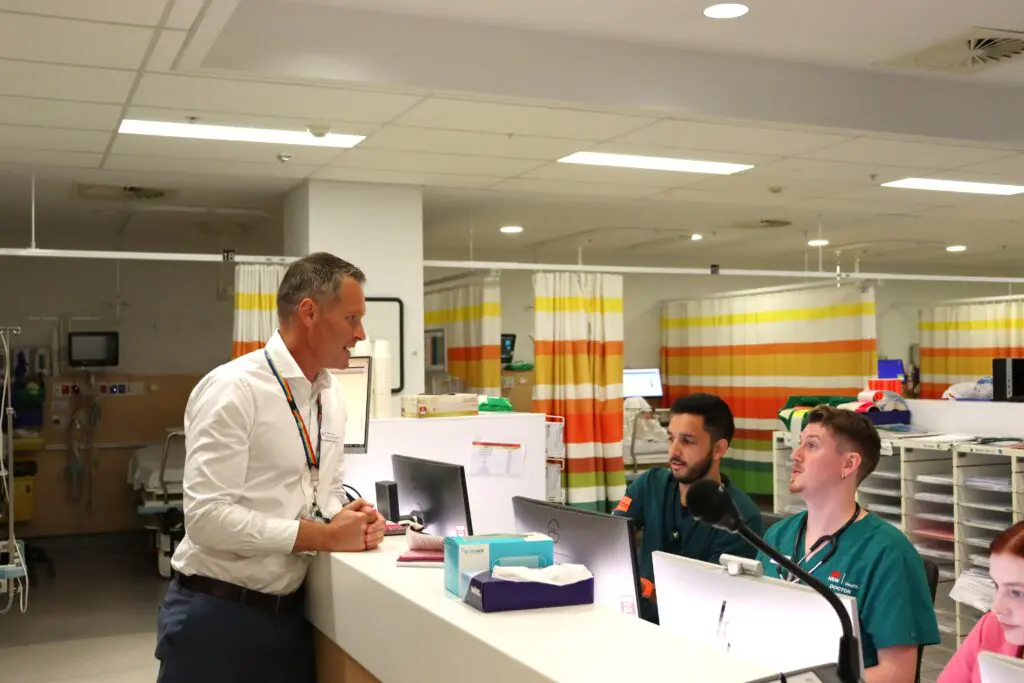
One of the busiest emergency departments in Sydney
No two days are the same in the ED. At the time that we met with Dr Harwood, he shared an overview of some patients being treated in the department;
54-year-old woman was airlifted in after a horse fell on her, which resulted in a broken pelvis, ribs and punctured lung. The ED team administered pain relief, inserted a tube to help reinflate the lung and gave her a blood transfusion. She had a CT scan and as her blood pressure was low, she received another blood transfusion. She will be operated on to fix her fractures and while she is estimated to be in hospital for some weeks, Dr Harwood says she will make a full recovery.
An eight-week-old boy came into the ED after catching a virus and has developed bronchiolitis. The team gave him oxygen to help his laboured breathing and inserted a nasogastric tube for feeding. He will spend at least two nights in the RNSH paediatric ward under observation before going home to his family.
A 13-year-old boy rolled his ankle playing basketball and was brought into the ED. He went to fast track which provides timely care for ED patients who present with less serious illnesses and injuries. An x-ray revealed he had suffered a sprain so he will be sent home with a compression bandage and instructions to rest his injured ankle.
A 64-year-old gentleman had a stroke and was rushed to RNSH by ambulance within an hour of losing power in his right side. He had urgent scans and was given a clot busting drug by the neurologists that has treated the problem. His power is returning, and he’ll be observed a little longer in the ED before going to the stroke unit to continue his recovery.
A 94-year-old gentleman fell in his living room. He’s had a CT of his head and cut on his face sutured up. He’s on his way to the ED Short Stay Unit where he’ll spend the night before being checked by the Aged Care Team in the ED in the morning and will be able to go home with some extra support.
The ambulance helicopter has radioed in to say they are 15 minutes out with a 19-year-old factory worker who’s been badly burnt in a gas explosion. A team of emergency and trauma doctors and nurses are joined by anaesthetists and burns surgeons to prepare to resuscitate and stabilise the man before he begins days of operations to graft skin onto the affected areas. These first few hours are vital to save his life and maximise his chances of a good recovery.
“Every patient is treated with the same high level of care, no matter what station they are in life or where they're from.”
The hospitals and healthcare staff are there for you throughout your life, even in those unexpected moments. If you would like to support the emergency department at RNSH, please make a donation here.
